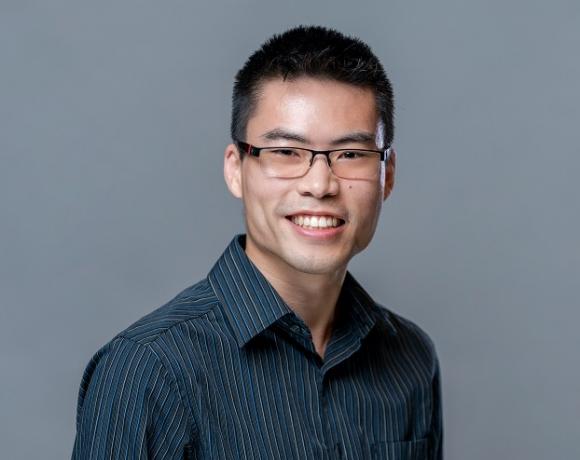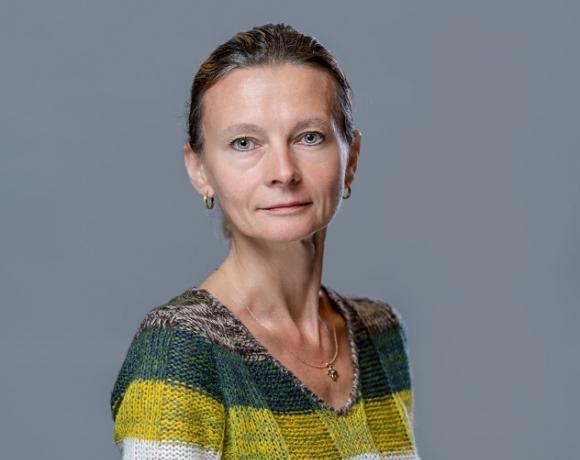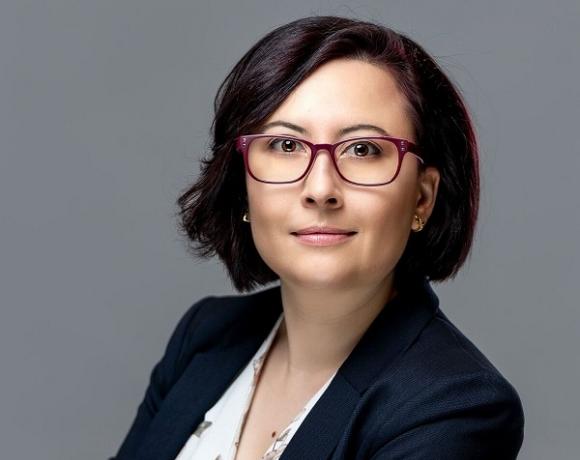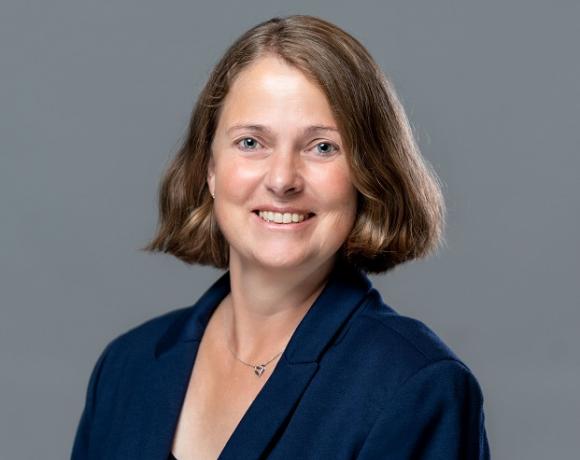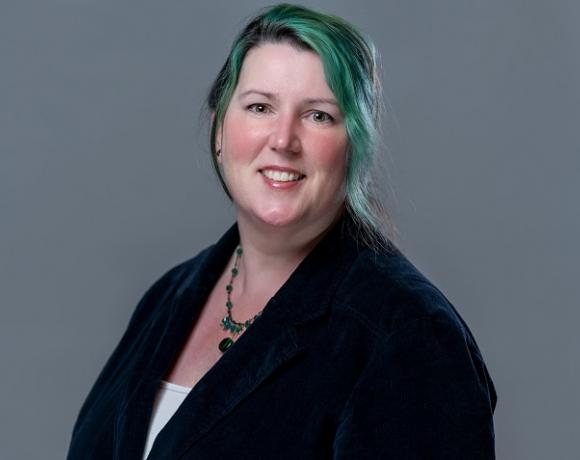Drug delivery and translational research, 2020
Chen, Kent T J, Anantha, Malathi, Leung, Ada W Y, Kulkarni, Jayesh A, Militao, Gardenia G C, Wehbe, Mohamed, Sutherland, Brent, Cullis, Pieter R, Bally, Marcel B
Drug delivery and translational research, 2019
Gilabert-Oriol, Roger, Sutherland, Brent W, Anantha, Malathi, Pallaoro, Alessia, Bally, Marcel B
Pharmaceutical research, 2019
Chen, Kent T J, Gilabert-Oriol, Roger, Bally, Marcel B, Leung, Ada W Y
Pharmaceutics, 2019
Leung, Ada W Y, Amador, Carolyn, Wang, Lin Chuan, Mody, Urmi V, Bally, Marcel B
Molecular cancer therapeutics, 2018
Wang, Yemin, Chen, Shary Yuting, Colborne, Shane, Lambert, Galen, Shin, Chae Young, Santos, Nancy Dos, Orlando, Krystal A, Lang, Jessica D, Hendricks, William P D, Bally, Marcel B, Karnezis, Anthony N, Hass, Ralf, Underhill, T Michael, Morin, Gregg B, Trent, Jeffrey M, Weissman, Bernard E, Huntsman, David G
Journal of nanobiotechnology, 2018
Shi, Minghan, Anantha, Malathi, Wehbe, Mohamed, Bally, Marcel B, Fortin, David, Roy, Laurent-Olivier, Charest, Gabriel, Richer, Maxime, Paquette, Benoit, Sanche, Léon
International journal of molecular sciences, 2018
Gilabert-Oriol, Roger, Ryan, Gemma M, Leung, Ada W Y, Firmino, Natalie S, Bennewith, Kevin L, Bally, Marcel B
Journal of controlled release : official journal of the Controlled Release Society, 2018
Leung, Ada W Y, Anantha, Malathi, Dragowska, Wieslawa H, Wehbe, Mohamed, Bally, Marcel B
Chemistry (Weinheim an der Bergstrasse, Germany), 2018
Prosser, Kathleen E, Leung, Ada W Y, Harrypersad, Shane, Lewis, Andrew R, Bally, Marcel B, Walsby, Charles J
Investigational new drugs, 2017
Wehbe, Mohamed, Lo, Cody, Leung, Ada W Y, Dragowska, Wieslawa H, Ryan, Gemma M, Bally, Marcel B
Clinical cancer research : an official journal of the American Association for Cancer Research, 2017
Leung, Ada W Y, Veinotte, Chansey J, Melong, Nicole, Oh, Min Hee, Chen, Kent, Enfield, Katey S S, Backstrom, Ian, Warburton, Corinna, Yapp, Donald, Berman, Jason N, Bally, Marcel B, Lockwood, William W
Dalton transactions (Cambridge, England : 2003), 2017
Wehbe, Mohamed, Leung, Ada W Y, Abrams, Michael J, Orvig, Chris, Bally, Marcel B
Drug delivery and translational research, 2017
Gilabert-Oriol, Roger, Chernov, Lina, Anantha, Malathi, Dragowska, Wieslawa H, Bally, Marcel B
European journal of pharmaceutics and biopharmaceutics : official journal of Arbeitsgemeinschaft fur Pharmazeutische Verfahrenstechnik e.V, 2017
Popov, Jesse, Gilabert-Oriol, Roger, Bally, Marcel B
The Journal of pathology, 2017
Wang, Yemin, Chen, Shary Yuting, Karnezis, Anthony N, Colborne, Shane, Santos, Nancy Dos, Lang, Jessica D, Hendricks, William Pd, Orlando, Krystal A, Yap, Damian, Kommoss, Friedrich, Bally, Marcel B, Morin, Gregg B, Trent, Jeffrey M, Weissman, Bernard E, Huntsman, David G
Cancer medicine, 2017
Chernov, Lina, Deyell, Rebecca J, Anantha, Malathi, Dos Santos, Nancy, Gilabert-Oriol, Roger, Bally, Marcel B
Journal of controlled release : official journal of the Controlled Release Society, 2017
Wehbe, Moe, Malhotra, Armaan, Anantha, Malathi, Roosendaal, Jeroen, Leung, Ada W Y, Plackett, David, Edwards, Katarina, Gilabert-Oriol, Roger, Bally, Marcel B
Proceedings of the National Academy of Sciences of the United States of America, 2017
Baradaran-Heravi, Alireza, Niesser, Jürgen, Balgi, Aruna D, Choi, Kunho, Zimmerman, Carla, South, Andrew P, Anderson, Hilary J, Strynadka, Natalie C, Bally, Marcel B, Roberge, Michel
Nature communications, 2017
Xu, Hong, Di Antonio, Marco, McKinney, Steven, Mathew, Veena, Ho, Brandon, O'Neil, Nigel J, Santos, Nancy Dos, Silvester, Jennifer, Wei, Vivien, Garcia, Jessica, Kabeer, Farhia, Lai, Daniel, Soriano, Priscilla, Banáth, Judit, Chiu, Derek S, Yap, Damian, Le, Daniel D, Ye, Frank B, Zhang, Anni, Thu, Kelsie, Soong, John, Lin, Shu-Chuan, Tsai, Angela Hsin Chin, Osako, Tomo, Algara, Teresa, Saunders, Darren N, Wong, Jason, Xian, Jian, Bally, Marcel B, Brenton, James D, Brown, Grant W, Shah, Sohrab P, Cescon, David, Mak, Tak W, Caldas, Carlos, Stirling, Peter C, Hieter, Phil, Balasubramanian, Shankar, Aparicio, Samuel
International journal of nanomedicine, 2017
Wehbe, Mohamed, Anantha, Malathi, Shi, Minghan, Leung, Ada Wai-Yin, Dragowska, Wieslawa H, Sanche, Léon, Bally, Marcel B
PloS one, 2017
Voráčová, Kateřina, Hájek, Jan, Mareš, Jan, Urajová, Petra, Kuzma, Marek, Cheel, José, Villunger, Andreas, Kapuscik, Alexandra, Bally, Marcel, Novák, Petr, Kabeláč, Martin, Krumschnabel, Gerhard, Lukeš, Martin, Voloshko, Ludmila, Kopecký, Jiří, Hrouzek, Pavel
Biochimica et biophysica acta, 2016
Hilchie, Ashley L, Sharon, Andrew J, Haney, Evan F, Hoskin, David W, Bally, Marcel B, Franco, Octavio L, Corcoran, Jennifer A, Hancock, Robert E W
Journal of drug targeting, 2016
Wehbe, Mohamed, Chernov, Lina, Chen, Kent, Bally, Marcel B
Oncotarget, 2016
Bortnik, Svetlana, Choutka, Courtney, Horlings, Hugo M, Leung, Samuel, Baker, Jennifer H, Lebovitz, Chandra, Dragowska, Wieslawa H, Go, Nancy E, Bally, Marcel B, Minchinton, Andrew I, Gelmon, Karen A, Gorski, Sharon M
Molecular cancer, 2016
Leung, Ada W Y, de Silva, Tanya, Bally, Marcel B, Lockwood, William W
Oncotarget, 2016
Leung, Ada W. Y., Backstrom, Ian, Bally, Marcel B
Inorganic chemistry, 2016
Chang, Stephanie W, Lewis, Andrew R, Prosser, Kathleen E, Thompson, John R, Gladkikh, Margarita, Bally, Marcel B, Warren, Jeffrey J, Walsby, Charles J
Leukemia research, 2006
Tucker, Catherine A, Bebb, Gwyn, Klasa, Richard J, Chhanabhai, Mukesh, Lestou, Valia, Horsman, Douglas E, Gascoyne, Randy D, Wiestner, Adrian, Masin, Dana, Bally, Marcel, Williams, Michael E
Cancer research, 2006
Troussard, Armelle A, McDonald, Paul C, Wederell, Elizabeth D, Mawji, Nasrin M, Filipenko, Nolan R, Gelmon, Karen A, Kucab, Jill E, Dunn, Sandra E, Emerman, Joanne T, Bally, Marcel B, Dedhar, Shoukat
Current drug delivery, 2005
Ramsay, Euan C, Dos Santos, Nancy, Dragowska, Wieslawa H, Laskin, Janessa J, Bally, Marcel B
Pharmaceutical research, 2005
Waterhouse, Dawn N, Denyssevych, Tetyana, Hudon, Norma, Chia, Stephen, Gelmon, Karen A, Bally, Marcel B
Journal of controlled release : official journal of the Controlled Release Society, 2005
Dos Santos, Nancy, Waterhouse, Dawn, Masin, Dana, Tardi, Paul G, Karlsson, Göran, Edwards, Katarina, Bally, Marcel B
Journal of controlled release : official journal of the Controlled Release Society, 2005
Chiu, Gigi N C, Abraham, Sheela A, Ickenstein, Ludger M, Ng, Rebecca, Karlsson, Göran, Edwards, Katarina, Wasan, Ellen K, Bally, Marcel B
Oncogene, 2005
Edwards, Lincoln A, Thiessen, B, Dragowska, Wieslawa H, Daynard, Tim, Bally, Marcel B, Dedhar, Shoukat
Molecular cancer research : MCR, 2004
Dragowska, Wieslawa H, Warburton, Corinna, Yapp, Donald T T, Minchinton, Andrew I, Hu, Yanping, Waterhouse, Dawn N, Gelmon, Karen, Skov, Kirsten, Woo, Janet, Masin, Dana, Huxham, Lynsey A, Kyle, Alastair H, Bally, Marcel B
Clinical cancer research : an official journal of the American Association for Cancer Research, 2004
Hu, YanPing, Bebb, Gwyn, Tan, Sophia, Ng, Rebecca, Yan, Hong, Sartor, Jason R, Mayer, Lawrence D, Bally, Marcel B
Clinical cancer research : an official journal of the American Association for Cancer Research, 2004
Messerer, Corrie Lynn, Ramsay, Euan C, Waterhouse, Dawn, Ng, Rebecca, Simms, Eva-Maria, Harasym, Natashia, Tardi, Paul, Mayer, Lawrence D, Bally, Marcel B
Magnetic resonance in medicine, 2004
Viglianti, Benjamin L, Abraham, Sheela A, Michelich, Charles R, Yarmolenko, Pavel S, MacFall, James R, Bally, Marcel B, Dewhirst, Mark W
Vaccine, 2004
Schutze-Redelmeier, Marie-Paule M, Kong, Spencer, Bally, Marcel B, Dutz, Jan P
Journal of controlled release : official journal of the Controlled Release Society, 2004
Abraham, Sheela A, Edwards, Katarina, Karlsson, Göran, Hudon, Norma, Mayer, Lawrence D, Bally, Marcel B
Cancer biology & therapy, 2004
Waterhouse, Dawn N, Dragowska, Wieslawa H, Gelmon, Karen A, Mayer, Lawrence D, Bally, Marcel B
Cancer treatment and research, 2004
Edwards, Lincoln A, Shabbits, Jennifer A, Bally, Marcel, Dedhar, Shoukat
Clinical cancer research : an official journal of the American Association for Cancer Research, 2004
Abraham, Sheela A, McKenzie, Cheryl, Masin, Dana, Ng, Rebecca, Harasym, Troy O, Mayer, Lawrence D, Bally, Marcel B
Molecular cancer therapeutics, 2003
Hu, Yanping, Bally, Marcel, Dragowska, Wieslawa H, Mayer, Lawrence
Vaccine, 2003
Li, Wai Ming, Dragowska, Wieslawa H, Bally, Marcel B, Schutze-Redelmeier, Marie Paule
Biochimica et biophysica acta, 2003
Chiu, Gigi N C, Bally, Marcel B, Mayer, Lawrence D
International journal of pharmaceutics, 2003
Wong, F M P, Harvie, P, Zhang, Y-P, Ramsay, E C, Bally, M B
Journal of experimental therapeutics & oncology, 2003
Waterhouse, Dawn N, Gelmon, Karen A, Masin, Dana, Bally, Marcel B
Journal of drug targeting, 2002
Wong, F M P, MacAdam, S A, Kim, A, Oja, C, Ramsay, E C, Bally, M B
Biochimica et biophysica acta, 2002
Chikh, Ghania G, Li, Wai Ming, Schutze-Redelmeier, Marie-Paule, Meunier, Jean-Claude, Bally, Marcel B
Biochimica et biophysica acta, 2002
Abraham, Sheela Ann, Edwards, Katarina, Karlsson, Göran, MacIntosh, Scott, Mayer, Lawrence D, McKenzie, Cheryl, Bally, Marcel B
Nucleic acids research, 2002
Hu, Qiang, Bally, Marcel B, Madden, Thomas D
International journal of pharmaceutics, 2002
Wasan, Ellen K, Waterhouse, Dawn, Sivak, Olena, Bally, Marcel B, Klasa, Richard J, Wasan, Kishor M
Bioscience reports, 2002
Allen, C, Dos Santos, N, Gallagher, R, Chiu, G N C, Shu, Y, Li, W M, Johnstone, S A, Janoff, A S, Mayer, L D, Webb, M S, Bally, M B
Biochimica et biophysica acta, 2002
Dos Santos, Nancy, Mayer, Lawrence D, Abraham, Sheela A, Gallagher, Ryan C, Cox, Kelly A K, Tardi, Paul G, Bally, Marcel B
The Journal of pharmacology and experimental therapeutics, 2002
Li, Wai Ming, Mayer, Lawrence D, Bally, Marcel B
Biochimica et biophysica acta, 2002
Chiu, Gigi N C, Bally, Marcel B, Mayer, Lawrence D
European journal of drug metabolism and pharmacokinetics, 2002
Guns, Emma S, Denyssevych, Tetyana, Dixon, Ross, Bally, Marcel B, Mayer, Lawrence
Journal of immunology (Baltimore, Md. : 1950), 2001
Chikh, G G, Kong, S, Bally, M B, Meunier, J C, Schutze-Redelmeier, M P
Vaccine, 2001
Li, W M, Bally, M B, Schutze-Redelmeier, M P
Biochimica et biophysica acta, 2001
Hu, Q, Shew, C R, Bally, M B, Madden, T D
Pharmaceutical research, 2001
Waterhouse, D N, Dos Santos, N, Mayer, L D, Bally, M B
Biochimica et biophysica acta, 2001
Li, W M, Xue, L, Mayer, L D, Bally, M B
Journal of immunological methods, 2001
Chikh, G, Bally, M, Schutze-Redelmeier, M P
Biochimica et biophysica acta, 2001
Johnstone, S A, Masin, D, Mayer, L, Bally, M B
Biochimica et biophysica acta, 2001
Wong, M, Kong, S, Dragowska, W H, Bally, M B
Biochimica et biophysica acta, 2001
Chiu, G N, Bally, M B, Mayer, L D
European journal of drug metabolism and pharmacokinetics, 2001
Guns, E S, Bullock, P L, Reimer, M L, Dixon, R, Bally, M, Mayer, L D
Drug safety, 2001
Waterhouse, D N, Tardi, P G, Mayer, L D, Bally, M B
Clinical cancer research : an official journal of the American Association for Cancer Research, 2000
Lim, H J, Parr, M J, Masin, D, McIntosh, N L, Madden, T D, Zhang, G, Johnstone, S, Bally, M B


